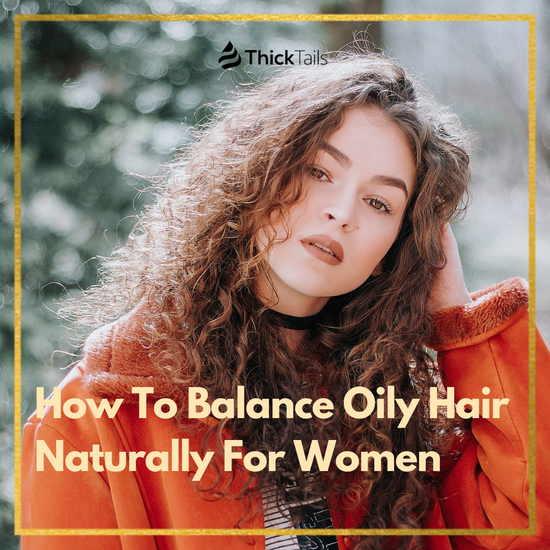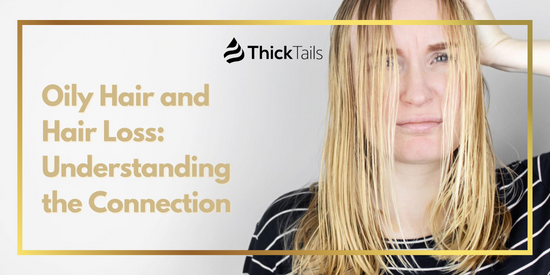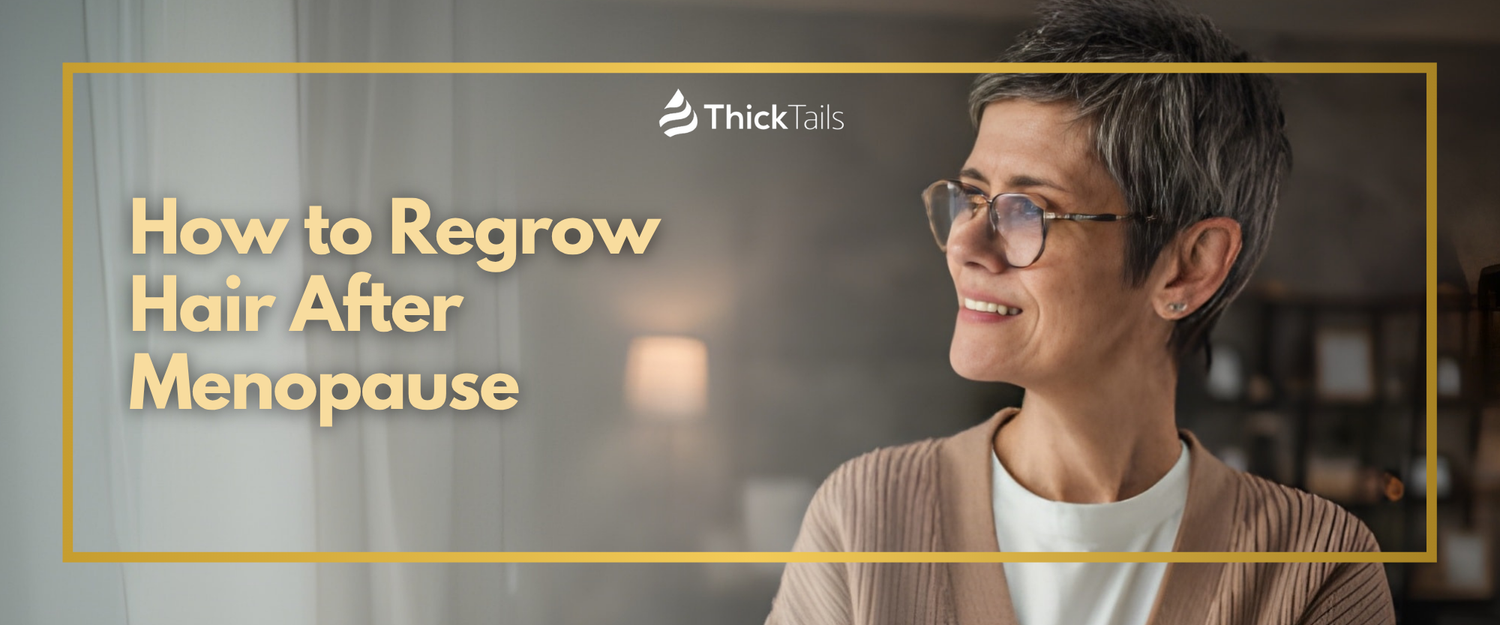Navigating the daily battle against oily hair and hair fall can be both perplexing and demoralizing, especially for men who often grapple with unique hair care challenges. In a society where the luster and fullness of your hair can often define your personal presentation, understanding how to manage these issues effectively is not just about personal grooming—it's about preserving confidence and self-assurance. This comprehensive guide is laser-focused on addressing the concerns of men dealing with oily hair and provides strategic methods to combat hair fall, ensuring that your mane remains a source of pride, rather than a point of anxiety.
Understanding Oily Hair and Hair Fall in Men

Before we tackle solutions, it's vital to grasp the underlying causes of these hair issues. Understanding the dynamics at play can empower you to make informed decisions on managing and, ideally, reversing them.
Oily hair in men can often be traced back to overactive sebaceous glands, which are influenced by a combination of genetics, hormonal fluctuations, and even stress. Similarly, factors contributing to hair fall include nutritional deficiencies, improper hair care routines, and environmental stressors. Recognizing these triggers is the first step towards tailoring a hair care regimen that not only mitigates oiliness but also reduces hair fall, striving for a balanced and healthy scalp.
Causes of Oily Hair
Hormonal imbalances, genetic predispositions, and the state of your scalp health are the primary culprits behind oily hair. Hormonal fluctuations, often associated with puberty and stress, can trigger the sebaceous glands to produce more oil, leading to a persistent oily scalp. Genetics also play a role, as some men are simply predisposed to produce more oil than others. Lastly, scalp health is crucial, with conditions like seborrheic dermatitis and poor hygiene potentially exacerbating the issue.
The Connection Between Oily Hair and Hair Fall
The excess buildup of natural scalp oils, or sebum, can have a significant impact on the health of your hair follicles. When sebum accumulates, it can block the hair follicles, promoting the growth of the acne-causing bacteria Propionibacterium acnes, as well as fungi. This may damage the hair follicles, leading to inflammation and in some cases, contributing to an acceleration of hair fall.
Identifying Oily Hair
It's essential to recognize the signs of oily hair to ensure timely intervention. Men with oily hair might notice that their hair feels greasy and looks stringy mere hours after washing it, and they may also experience increased dandruff due to the flaking of the oil and dead skin cells. The hair may also appear flat and lack body or volume, due to the weight of the oil pulling it downwards.
Managing Oily Hair to Prevent Hair Fall
Successfully managing oily hair can halt the domino effect leading to hair fall. Here's how to address oily hair head on.
For men struggling with oily hair and hair fall, incorporating a targeted shampoo and conditioner regimen is crucial. Look for products specifically formulated for oily scalp conditions that also prioritize strengthening hair to reduce hair fall. Additionally, applying a lightweight serum can help in balancing the scalp's oil production without weighing hair down, offering a comprehensive approach to managing oily hair and minimizing hair fall.
Proper Hair Washing Techniques
One of the most critical steps in managing oily hair is adopting the right hair washing routine. While it may seem counterintuitive, frequent washing can actually stimulate the sebaceous glands to produce more oil. Instead, aim to wash your hair every other day using a mild or clarifying shampoo specially formulated for oily hair. Focus the product application on the scalp, massaging it in to break down the sebum, and allow the lather to run down the length of your hair as you rinse to prevent over-drying.
Balancing Scalp Oil Production
Seeking a balance in scalp oil production is the key to maintaining healthy hair without excess oil. Incorporating natural remedies such as apple cider vinegar rinses, aloe vera, and green tea into your haircare routine can help to regulate sebum production. Additionally, be mindful of harsh hair care practices—such as frequent blow drying and over-brushing—that can strip your scalp of its necessary oil barrier, prompting a reaction to overcompensate.
Styling Tips for Oily Hair
Styling can be a conundrum when it comes to oily hair. Opt for styles that don’t require extensive application of hair products, as these can exacerbate the issue. Avoid heavy waxes, gels, and styling creams that can weigh your hair down with an additional layer of oil. Stay away from slicked-back looks and instead, go for styles that allow for some volume and body, such as a textured crop or a layered cut.
Preventing Hair Fall in Men with Oily Hair

Now that we have strategies in place to manage oiliness, it's time to focus on mitigating the risk of hair fall, which can be accelerated by excessive oil.
To confront hair fall directly, men with oily hair should consistently use a shampoo and conditioner designed to strengthen hair and prevent oil build-up. Following up with a hair serum specifically formulated for oily scalps can nourish the hair roots, further reducing the likelihood of hair fall. This three-step approach ensures that men can maintain a healthy scalp environment, mitigating the common concerns associated with oily hair and hair fall.
Diet and Nutrition
Your diet can play a significant role in the health of your hair. Rich in omega-3 fatty acids, avocados, walnuts, and salmon are examples of foods that can help regulate oil production. Additionally, foods with high levels of antioxidants and vitamin E—such as spinach and sunflower seeds—can contribute to scalp health and delay the onset of hair fall.
Beyond focusing on diet alone, incorporating supplements into your daily regime can be beneficial for men battling both oily hair and hair fall. Supplements rich in vitamins D, E, and B-complex, as well as minerals like zinc and iron, directly support hair health by fostering a balanced scalp environment and promoting hair growth. This holistic approach can significantly mitigate the issues associated with oily hair and hair fall in men.
Scalp Care Routine
A diligent scalp care routine can work wonders in preventing hair loss. Regular exfoliation using a scrub or a soft bristle brush can help clear the hair follicles of any excessive buildup, promoting a healthy environment for hair growth. It's also crucial to incorporate a quality hair serum into your routine to maintain the strength and elasticity of your hair, reducing the likelihood of breakage and fall.
Professional Treatments
For those facing persistent issues with oily hair and hair fall, professional treatments may be the next step. Consult with a dermatologist or a trichologist to explore therapies such as scalp massages, photodynamic therapy, or medications like minoxidil, which have been shown to be effective in managing hair loss. In severe cases, hair transplantation techniques can also be considered.
Armed with these insights, you can now take proactive steps to manage oily hair and prevent hair fall, safeguarding not just your scalp but also your self-assurance. Remember, the path to healthy hair is an ongoing one, so be patient and consistent in your efforts. Your hair is a reflection of sophisticated self-care, and the investment you make in understanding and nurturing it will undoubtedly pay off in maintaining vibrant locks for years to come.







